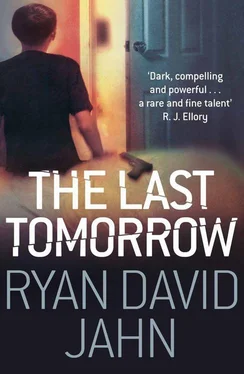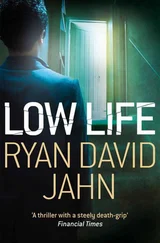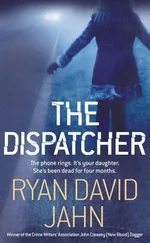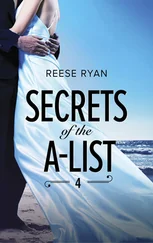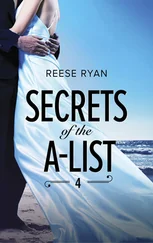Ryan Jahn - The Last Tomorrow
Здесь есть возможность читать онлайн «Ryan Jahn - The Last Tomorrow» весь текст электронной книги совершенно бесплатно (целиком полную версию без сокращений). В некоторых случаях можно слушать аудио, скачать через торрент в формате fb2 и присутствует краткое содержание. Год выпуска: 2012, ISBN: 2012, Издательство: Macmillan Publishers UK, Жанр: Триллер, на английском языке. Описание произведения, (предисловие) а так же отзывы посетителей доступны на портале библиотеки ЛибКат.
- Название:The Last Tomorrow
- Автор:
- Издательство:Macmillan Publishers UK
- Жанр:
- Год:2012
- ISBN:9780230766501
- Рейтинг книги:4 / 5. Голосов: 1
-
Избранное:Добавить в избранное
- Отзывы:
-
Ваша оценка:
- 80
- 1
- 2
- 3
- 4
- 5
The Last Tomorrow: краткое содержание, описание и аннотация
Предлагаем к чтению аннотацию, описание, краткое содержание или предисловие (зависит от того, что написал сам автор книги «The Last Tomorrow»). Если вы не нашли необходимую информацию о книге — напишите в комментариях, мы постараемся отыскать её.
The Last Tomorrow — читать онлайн бесплатно полную книгу (весь текст) целиком
Ниже представлен текст книги, разбитый по страницам. Система сохранения места последней прочитанной страницы, позволяет с удобством читать онлайн бесплатно книгу «The Last Tomorrow», без необходимости каждый раз заново искать на чём Вы остановились. Поставьте закладку, и сможете в любой момент перейти на страницу, на которой закончили чтение.
Интервал:
Закладка:
Goodbye, white rabbit.
Last night after checking into this crummy motel he lay in bed, stared at the ceiling, wondered if his life might be recovered. When he finally fell asleep he dreamed again that he was high up in an office building. He dreamed that he was stuck in that building alone. He called out but no one answered. He tried to find an elevator but there was no elevator. Where it should have been was only an empty shaft. When he looked down into it, vertigo sweeping over him, he could not see the bottom. It went down and down into darkness. He took the stairs. He walked for a very long time but never reached the bottom. In the dream he walked for months, for years, but it was never over. He just went down forever. Until he woke up, anyway.
He should have brought his typewriter. He’s owned it since he moved to New York eighteen years ago. Every story he published he banged out on that machine, and now it’s gone. Somehow, even with everything that’s happened in the last few days, it feels like a great loss. Some big part of him sunk to the bottom of a murky sea.
He flips up his collar. He lights a cigarette. He walks along the sidewalk, down Whitley Avenue to Hollywood Boulevard, looking for a newsstand. Two blocks on, the rain-soaked paper holding his cigarette together breaks apart. He spits it into the gutter and it’s immediately swept away on a filthy river.
He finds a newsstand on Cahuenga, red bricks resting on top of the stacks of newspapers to keep the wind from carrying the profits away, an awning overhead doing a reasonable job of protecting them from the rain. He grabs a local paper, pays, heads back to the motel with the news tucked under his arm. He’s almost afraid to look at it. He is afraid to look at it. Afraid he’ll see his picture on the front page. Wanted on suspicion of murder. That might make it difficult for him to get around the city without being recognized, and he thinks he’s going to have to get around the city if-
First just read the goddamn paper and see how bad it is, Eugene.
He walks to his motel room, number 13, marked by a stone by the door with the number painted on it. He keys his way into the place and steps into a pile of squalor he immediately wants to scrape from the bottom of his shoe. A sagging bed in the middle of the room with a small night table on either side of it. In the corner, an easy chair with torn upholstery. A card table with gashes cut across its gray surface. Two wooden chairs on either side of the table, and a lamp with a torn paper shade sitting on top of it. Everything seems old and dirty and used, even the lamp’s dim light.
He walks to the bed and sits down. He arms water from his face, wipes it from his eyes with the heels of his hands. He unfolds the paper and looks at the front page:
KEY WITNESS IN COMIC CRUSADE MURDERED!
LOS ANGELES — Theodore Stuart, a New Jersey accountant with alleged ties to organized crime on the East Coast, was found dead in his room at the Shenefield Hotel early yesterday evening after police received a tip from an anonymous caller that he had been murdered. Mr Stuart was under police protection at the time of his murder, pending his testimony before a grand jury. The officer charged with protecting him, whose name has not yet been released, was also killed.
District Attorney Seymour Markley believed that Mr Stuart’s testimony would prove there were ties between James Manning, long suspected of being a major figure in organized crime, and a comic book called Down City , which is believed to have inspired a recent Bunker Hill murder. The purpose of the grand-jury investigation was to determine whether there might be enough evidence to charge James Manning and others involved in the creation of the comic book with negligent homicide. It would be the first such case in American history.
We reached Markley at his home yesterday evening, and he said that despite this set-back, the investigation would continue.
‘But our focus right now should be on the tragic loss of two lives. A man with courage and a willingness to testify against dangerous criminals was murdered, and along with him, one of our city’s finest officers.’
Despite Theodore Stuart’s ties to organized crime, and the nature of his stay at the Shenefield Hotel, police do not currently believe James Manning was responsible for his murder. Markley said that the LAPD’s lead investigator on the case, Detective Carl Bachman, had reason to believe a local man, who may have been involved in the creation of the comic book himself, was responsible. ‘We believe he was worried about being implicated during Mr Stuart’s grand-jury testimony.’ He said, however, that police are currently unwilling to release the suspect’s name. For the time being, they are ‘gathering evidence and chasing down every possible lead’.
The rain outside is now pouring down. He can hear it drumming on the roof like ten thousand nervous fingers. He walks to the window and pulls back the curtains. Sheets of rain fall from the sky. Within twenty minutes the streets will be flooded. Tomorrow great chunks of asphalt will have been washed away, leaving enormous potholes.
He turns away from the window, looks around the room.
Decides to venture once more into the rain.
2
Eugene walks to his motorcycle, kick-starts the engine. It rumbles grumpily. He straddles the large leather seat, throttles some gas into the engine, revving it up. A moment later he pulls out into the street, tires sliding against the rain-wet asphalt, rear end fishtailing momentarily before regaining traction and control.
He didn’t bring a jacket. In his rush to get out of the apartment he neglected to consider that he might need one. He merely stuffed his suitcase with what his hands grabbed. He wears only a thin cotton sweater to protect him from the elements, and it merely serves to soak up the rain.
By the time he gets where he’s going he’s wet to the bone. A quick but violent shiver works its way through his body. He steps from the bike and toes down the kickstand. He takes his glasses from his face and shakes them off, then sets them once more on the bridge of his nose. He looks through them to a smudged and water-spotted world beyond. A rectangular block of apartments stands across the street. The building is pink stucco guarded by a pair of palm trees like wind-tattered umbrellas which bend toward the southwest. He’s only been here once before.
He hopes Fingers is home. His shift is midnight to eight, but if he’s warming a barstool somewhere Eugene could be waiting for hours.
He walks to the front door and gives it a knock.
For a long time there’s no answer, then there is. The door creaks open and his friend looks out at him bleary-eyed, the skin beneath his eyes swollen and pink.
‘Eugene,’ he says. ‘What happened to you today, man?’
‘I need your help. Can I come in?’
Fingers stares at him a moment, silent, then nods and steps aside.
Eugene steps into the tiled entrance. His clothes are soaked through, couldn’t get any wetter if he were dunked in a tub of water. He’s very cold. The apartment is warm. He can feel the gas heater and smell the pleasant scent of heated ducts and the dust and spiders within them. Eugene’s glasses fog up in the warmth. He wipes them off on his undershirt.
Fingers shuts the door.
‘Don’t move.’
Then he’s gone, disappeared into the hallway.
The living room has brown carpet and brown furniture and the walls are tacky and yellow with wallpaper paste, though the wallpaper itself has been steamed away. A few pictures hang on the walls, mostly of musicians playing their instruments.
When Fingers returns he has a towel in his hand. He tosses it to Eugene, who catches it and wipes himself down with it.
Читать дальшеИнтервал:
Закладка:
Похожие книги на «The Last Tomorrow»
Представляем Вашему вниманию похожие книги на «The Last Tomorrow» списком для выбора. Мы отобрали схожую по названию и смыслу литературу в надежде предоставить читателям больше вариантов отыскать новые, интересные, ещё непрочитанные произведения.
Обсуждение, отзывы о книге «The Last Tomorrow» и просто собственные мнения читателей. Оставьте ваши комментарии, напишите, что Вы думаете о произведении, его смысле или главных героях. Укажите что конкретно понравилось, а что нет, и почему Вы так считаете.
